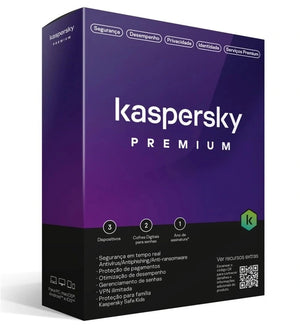In the vast digital universe, the choice between proprietary and open source software is crucial. Let's explore the nuances of these options, empowering you to make informed decisions about the tools that power your everyday digital experiences.
Have you ever wondered how the software you use every day works? Who created it, who controls it and who can change it? These are some of the questions that define the nature of the software you use.
In this article, we will introduce the basic concepts of proprietary and open source software, as well as their advantages and disadvantages. We will also analyze the differences in security and customization of these two categories, and how they impact the development of new solutions.
What Defines Proprietary and Open Source Software?
Before we dive into the distinctions, it is essential to understand the basics: what makes software proprietary and what characterizes open source software? Let’s unpack these concepts to provide a solid understanding.
Proprietary software is software that is developed, maintained and controlled by a specific company or organization. The software source code is protected by copyright and is not accessible to the public. Users must pay a license or subscription to use the software, and cannot modify or distribute it freely.
Open source software is software that is developed, maintained and controlled by a community of volunteer programmers. The software source code is made available to the public under a license that allows it to be modified and distributed freely. Users can use, study, improve and share the software without restrictions.
Advantages of Proprietary Software
Explore the unique advantages that proprietary software offers. From dedicated support to seamless integration, discover how these features can take your digital experience to the next level.
One of the main advantages of proprietary software is professional technical support. As the software is created by a specific company or organization, users can count on specialized and fast support in case of problems or questions. Furthermore, proprietary software usually has regular updates and quality assurance.
Another advantage of proprietary software is the seamless integration between different products from the same company or organization. For example, if you use Microsoft Office, you can easily sync your documents, spreadsheets, and presentations across different devices and platforms. This facilitates collaboration and productivity.
A third advantage of proprietary software is the exclusivity of some functionalities or resources. Because the software is protected by copyright, developers can offer innovative or different solutions that are not found in other similar software. This can give users a competitive advantage or a unique experience.
Advantages of Open Source Software
On the opposite side of the spectrum, open source software has its strengths. From transparency to customization, dive into the benefits the open source community brings to software development.
One of the main advantages of open source software is the transparency of its operation. Because the software's source code is public, users can check how it was created, what its components are, and how it operates. This allows users to have more confidence and control over the software they use.
Another advantage of open source software is the possibility of customizing its performance. As the software's source code is free, users can modify it according to their needs or preferences. This allows users to create personalized solutions or solutions adapted to their specific contexts.
A third advantage of open source software is the collaboration of its developer community. Because the software is maintained and improved by a network of volunteer programmers, users can count on a variety of opinions, suggestions, and contributions. This favors software innovation and diversity.
Differences in Security and Customization
Security and customizability are decisive factors. Analyze how proprietary and open source software stack up in these critical aspects, giving you valuable insights into your choice.
When it comes to security, proprietary software and open source software have their advantages and disadvantages. On the one hand, proprietary software has the advantage of centralized control and a dedicated team of security experts. On the other hand, open source software has the advantage of public scrutiny and quick bug fixes.
When it comes to customization, proprietary software and open source software also have their pros and cons. On the one hand, proprietary software has the advantage of having a standardized interface and guaranteed compatibility. On the other hand, open source software has the advantage of unlimited flexibility and constant adaptability.
Choosing the Best for You: Final Considerations
At the crossroads between these two categories, final considerations will shape your decision. Explore factors such as cost, flexibility and specific requirements to guide your choice.
One of the most important factors when choosing between proprietary and open source software is cost. Proprietary software generally has a higher cost as it involves paying for licenses or subscriptions. Open source software generally has a lower cost because it is free or has voluntary donations.
Another relevant factor when choosing between proprietary and open source software is flexibility. Proprietary software generally has lower flexibility as it depends on the decisions of the company or organization that created it. Open source software generally has a higher flexibility as it depends on the needs or preferences of the users modifying it.
One final factor to consider when choosing between proprietary and open source software is the specific requirements you have for its use. Depending on your objective, your target audience, your level of technical knowledge and your time availability, you can opt for one option or another.
Impact on Software Development
Beyond the end user, the choice between proprietary and open source software has significant implications for the development of new solutions. Discover how this choice influences the software development landscape.
Software development is a dynamic and constantly evolving field. The choice between proprietary and open source software directly affects how developers create, distribute, and improve their products. Each option has its benefits and challenges for professionals in the field.
Proprietary software development involves a more structured and formal process, with defined steps and established deadlines. Developers need to follow the guidelines of the company or organization that hired them, and ensure the quality and security of the final product. Developers also have to deal with legal, business and competitive issues.
Open source software development involves a more organic and informal process, with flexible steps and variable deadlines. Developers can pursue their own ideas or join existing projects, and contribute their creativity and skill to the final product. Developers also need to deal with technical, ethical and collaborative issues.
Conclusion: Navigating the Software Universe
At the end of this journey of discovery, you will be equipped with the knowledge necessary to navigate the vast universe of software. Make informed choices, aligned with your digital needs and goals.
In this article, you learned about the differences between proprietary and open source software, as well as their advantages and disadvantages. You also analyzed the differences in security and customization of these two categories, and how they impact the development of new solutions.
Now you're ready to explore the world of software with confidence and discretion. Remember that there is no right or wrong answer to this choice, but rather one that best suits your specific case.
Explore Our Software Solutions!
Take the next step on your digital journey. Explore our software solutions, designed to meet the diverse needs of modern users. Discover the store and improve your digital experience today!
Our store offers a variety of proprietary and open source software, to suit all tastes and budgets. You can find everything from basic applications to advanced programs, for personal or professional use, for desktop or mobile.
Don't waste time and visit our store right now. You will be surprised by the options we have for you. And if you have any questions, you can count on our specialized technical support, which is always ready to help you.






